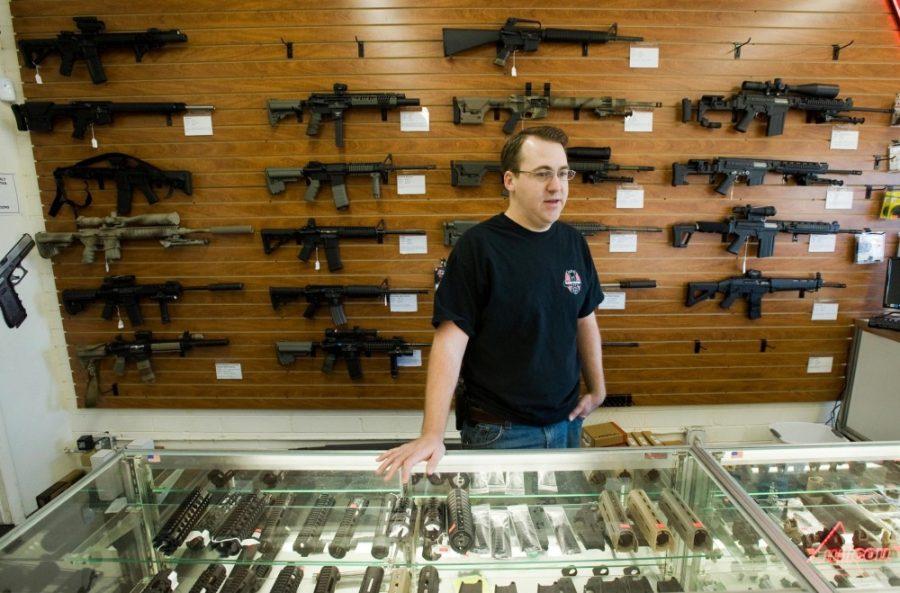National and state lawmakers are rushing to pass gun-related legislation in the wake of Tucson’s Jan. 8 shooting, but differ on how they should respond.
U.S. Rep. Carolyn McCarthy, D-N.Y., of New York’s 4th Congressional District, presented a new bill to Congress yesterday that, if enacted, would make the sale and transfer of high capacity magazines. Shooting suspect Jared Loughner allegedly used a Glock 19 handgun with a similar extended magazine in the recent shooting.
High capacity magazines are ones that contain more than 10 rounds of ammunition.
“”I know what it’s like to have tragedy brought to your life in a split second by a madman with high capacity ammunition magazines,”” McCarthy said in a press release. “”I’m working to stop it from happening again.””
At least 22 members of the House have signed on to co-sponsor the bill.
The proposed legislation has brought some criticism from a campus political group.
“”It’s bad legislation that goes against the Second Amendment,”” said Trevor Laky, the president of the UA College Republicans and a philosophy and political science major. “”You are going to prevent someone from having an 18-round clip, so then they buy two guns, have 20 rounds now and can shoot the rounds faster.””
Tom Rompel of the local Black Weapons Armory gun store agreed that banning high capacity magazines does not solve the problems presented by the shooting.
“”It’s a knee-jerk response,”” Rompel said. “”It’s not going to deter crime but punish law abiding citizens.””
Meanwhile, Arizona state lawmakers are trying to advance efforts to pass a law making it legal for university faculty to carry concealed weapons on campus. This is the third time since 2008 that a law of this nature has been attempted.
Last year, a state law was passed allowing students and faculty with concealed carry permits to have a gun on campus in the trunks of their cars.
“”The campus is a weapons-free zone,”” said Sgt. Juan Alvarez of the University of Arizona Police Department. “”You need to have permission.””
Though Alvarez noted that guns are allowed in cars on campus, he declined to speculate on what impact the proposed legislation would have on the UA.
Utah is the only state in the United States that expressly allows concealed weapons on college campuses.
“”It wasn’t that big of a deal,”” said Sam Hopkins, an employee at Black Weapons Armory and a former University of Utah student.
Hopkins said that he carried a gun to campus daily and knew some friends who did, too. It also wasn’t uncommon for professors to have guns as well.
“”In practice, (nothing bad) ever happened, so it wasn’t a big deal,”” Hopkins said.
Rompel described the UA as a place that would need additional protection.
“”If you wanted to commit a mass killing, where would you go? The place where guns aren’t allowed,”” he said.
Arielle Ellis, UA pre-pharmacy senior, agreed with both Congress and state Legislature.
“”It’s only fair for people to have the opportunity to defend themselves,”” Ellis said.
But Ellis does view high capacity magazines as a little extreme.
“”For civilians, it’s not necessarily a good idea,”” she said.
Rompel also said, “”When was the last time you heard of school shooting in Utah?””
The Brady Campaign to Prevent Gun Violence ranks states based on their gun laws. States were scored on five categories: the efforts they took to curb firearm trafficking, strengthening Brady background checks, protecting child safety, banning military style assault weapons and restricting guns in public places. Arizona scored two points in the last category and received a zero in all others. Utah scored a zero on everything and was the only state to receive a zero. California ranked the highest with a 79 out of 100.









